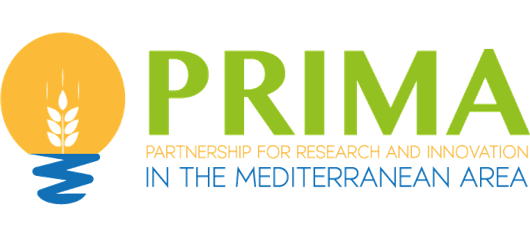 Effect of using pruning waste as an organic mulching on a drip-irrigated vineyard evapotranspiration under a semi-arid climate
Effect of using pruning waste as an organic mulching on a drip-irrigated vineyard evapotranspiration under a semi-arid climate
ABSTRACT : In a drip-irrigated vineyard soil evaporation (E) can reach up to 30-40% of the seasonal grapevine crop evapotranspiration (ETc). Vineyard soil management can be used as a technique to reduce soil E for improving crop water use efficiency. The aim of this experiment was to analyze the effect of using pruning waste as an organic mulching on vineyard ETc. During three experimental seasons, several cycles of grapevines water use determinations were conducted using a large weighing lysimeter located in Albacete (southeast Spain) under drip irrigation. Measurements were carried out under different soil management practices: i) keeping the bare soil within the lysimeter during the first 2-3 days (bare soil), ii) covering the lysimeter soil surface with pruning waste as an organic mulching (about 5 cm thick) for the next 2-3 days (organic mulch), and iii) covering the lysimeter with a waterproof canvas (plastic mulch), similar in colour to the soil, for the last 2-3 days of each measurement cycle. In 2017, the measurements period was initiated when midday stem water potential (Ψstem) values reached -1.3 MPa, in order to study the effect of the different soil management on grapevine ETc when vines in the lysimeter were suffering from severe water stress. During the 3-year study, plant determinations (i.e., canopy cover and the phenological stage) showed that vines were at the same stage of development during each period of measurements. Under equal evaporative demand and fractional canopy cover, results showed a reduction in the vineyard ETc between 16-18% with the organic mulching, and up to 24-30% with the plastic mulching. Even though plastic mulches significantly reduced water evaporation from soil surface, this reduction could have resulted in an increase in crop transpiration (T). However, results in this experiment show that both organic and inorganic mulching did not increase vine T compared to no mulching conditions, based on vine T values estimated during the three experimental periods of 2015. Therefore, using pruning waste as an organic mulch could be an environmental friendly alternative to reduce soil evaporation and increase crop water productivity in large areas where vineyards are drip-irrigated.
Keywords: Weighing lysimeter; Soil evaporation; Vine transpiration; Water use; Organic mulch; Plastic mulch
Link to the article : Click here

